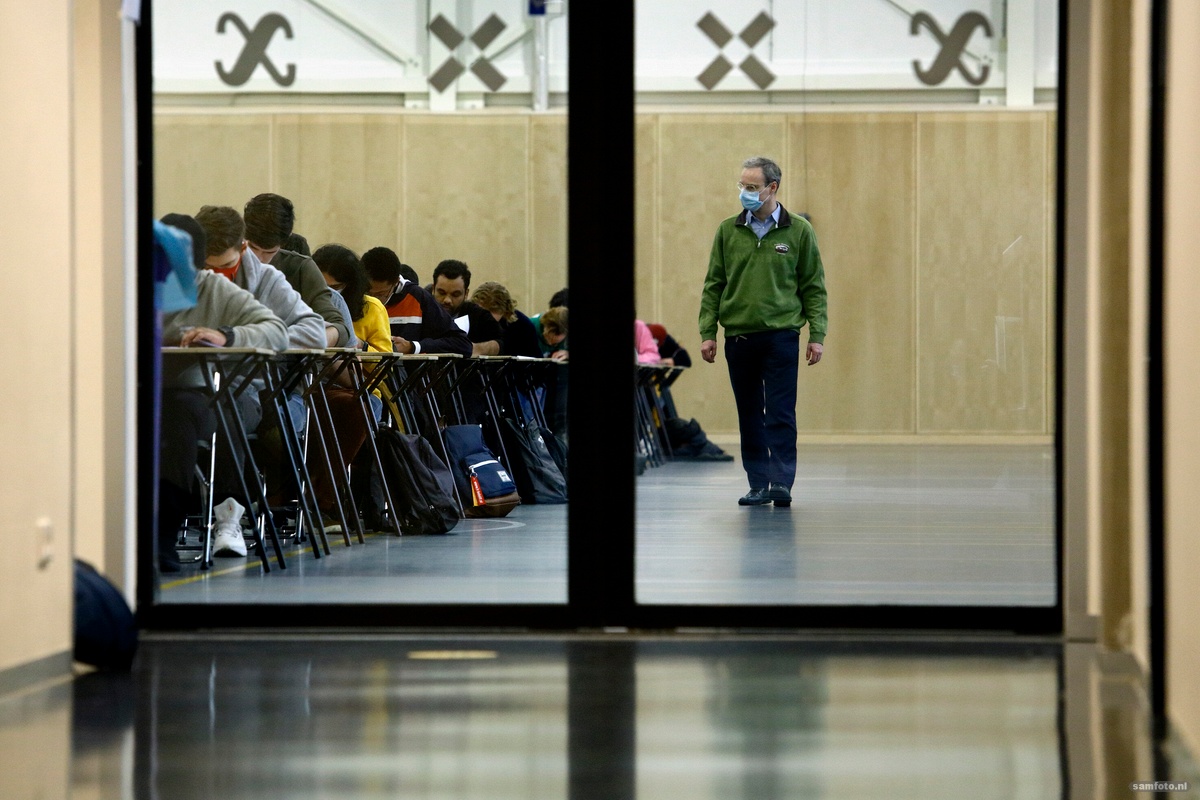The Works Council wants to do away with anonymous questionnaires in which students evaluate teachers. They do not meet requirements and are hurtful. What do students think?
“You receive a questionnaire shortly after doing an exam, when you have had enough.” (Photo: Sam Rentmeester)
Anonymous student questionnaires expose teachers to aggression and discrimination, TU Delft’s Works Council recently asserted on this website. In the article, teachers describe their experiences with the hard comments of students. It is hurtful. And this while, in their eyes, the so-called Evasys questionnaires do not even do what they are meant to do: evaluate the quality of education. The majority of students do not even fill in the questionnaire so there are also doubts about how representative they are.
While the Works Council is asking for an alternative, the Executive Board sees the value of these questionnaires. They rationalise that the worst comments are filtered out and for the rest, teachers should simply not take unfounded criticism personally. The Executive Board believes that all students have the right to give feedback and, yes, this must be done anonymously to give the students a safe space to evaluate those that evaluate them. In the article, Executive Board Member Rob Mudde says that they would get into trouble with the Student Council if the anonymous questionnaires would disappear.
‘Even criticism that is seen as unfounded has its roots somewhere’
Time for a response from the Student Council. What do they think of the Works Council’s criticism and the allegation that students treat teachers aggressively? And why is this subject not as high on the Student Council’s agenda as it is on the Works Council’s?
Student Council Chair Job Vlak recognises that the current system could be improved. He calls it ‘below par but the only one that works’. He believes that the main issue is that students do not really realise that there is a problem. “They are often unaware of the consequences of their words in a questionnaire. We need to raise that awareness.”
One thing that really does not help, believes Vlak, is the timing of the questionnaires. This should be improved. “You receive a questionnaire shortly after doing an exam. You have had enough but you still have to fill something in small text boxes.” He does believe that it is essential that all students have the chance to express their opinions. “Even criticism that is seen as unfounded has its roots somewhere. The Works Council is not taking this into consideration.” That it should be done anonymously, Vlak believes is fundamental. “If this were not the case, students would just try to please their teachers.”
Now that the Works Council and the Executive Board are at an impasse about the Evasys questionnaires, the former has taken the initiative to try to find some alternative options. To Vlak this is a good idea, and he would like the Student Council to get involved. “We are open to this. We want to discuss it and help, and it is fair that the Works Council would take the initiative and is not just sitting on an island. It affects all of us.”
In the meantime, the Works Council and the Student Council have been in contact with each other.
Do you have a question or comment about this article?
s.m.bonger@tudelft.nl


Comments are closed.